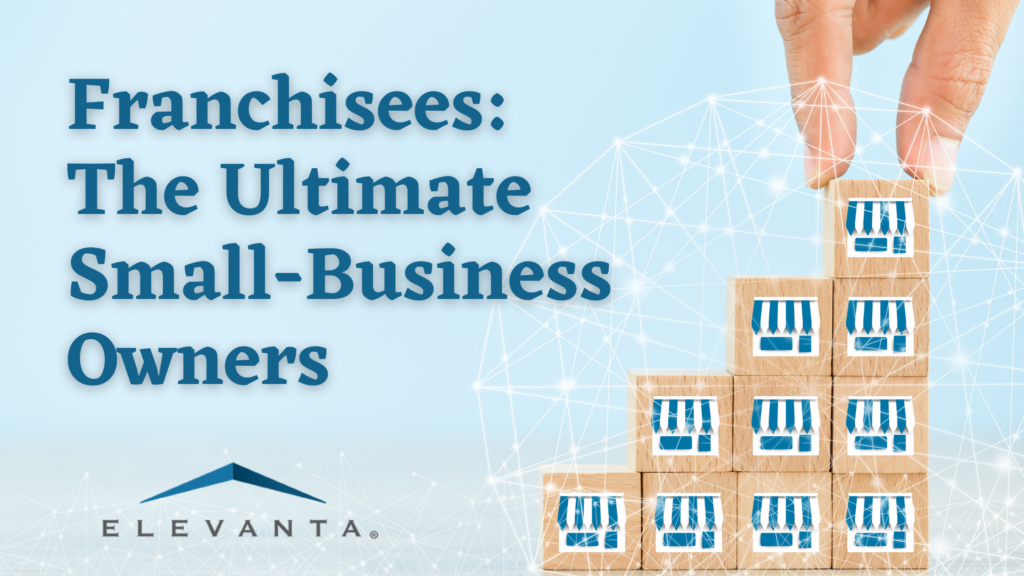
If anyone truly understands the meaning of risk, it’s a small-business owner. Since roughly a year ago, business owners have faced a plethora of challenges that threatened their companies. Between a competitive election, riots across the nation and a global pandemic, business owners have had to go to great lengths to protect their businesses and help them survive.
One group of small-business owners that is often misclassified is franchisees. A franchisee is an individual or company that, through a franchise agreement, is an independent contractor authorized to use the brand logos, marketing and operations materials of the franchisor. Often times, this agreement is in exchange for substantial fees.
Busting the Myth of Franchisees
Many chain establishments in your hometown might have recognizable company names on their signage, but the names that are not shown are those of franchisees who have often invested their life savings into the business; they usually live in and employ those in the area. Companies across all industries are made up of franchisees. From restaurants to fitness studios, salons to hotels, many of the “big companies” you might patronize are operated by true small-business owners – franchisees.
In a June interview with OAN’s Wall to Wall, Elevanta’s Vice President of Legislative Affairs Misty Chally refers to franchisees as the “ultimate small-business owners,” explaining that they are the ones paying and providing benefits for their staff members and involving themselves in their communities. “Franchisees are the ones supplying products at your local festivals or sponsoring Little League teams,” said Chally.
In her role as vice president of legislative affairs, Chally works with each association that Elevanta manages to provide government relations services, connecting franchisees with lawmakers on Capitol Hill.
Franchisees Take on the Costs of the Pandemic
Because franchisors don’t pay for franchisees’ rent, utilities and payroll, many franchisees qualified for government assistance such as the Paycheck Protection Program (PPP) to help keep their teams employed throughout the pandemic.
Despite the common misconception that franchisees are “big businesses,” 75% of franchisees have fewer than 20 employees. Without help from the franchisor or government assistance, these businesses would be left in the dust.
How Can an Association Help?
Part of the reason franchisee associations exist is to help assist and guide franchisees through financial and legal turmoil. Over the past few years, more associations geared towards franchisees have been created. But how exactly do they help in times of crisis like a pandemic?
Throughout 2020, the National Franchisee Association (NFA), comprised of around 400 BURGER KING franchisees who operate over 7,000 restaurants, had virtual meetings with representatives via Zoom. The association set up weekly calls for franchisees to speak with senators and representatives. Over 20 meetings were held between August and September, giving small-business owners a chance to speak directly with those on capitol hill.
Meetings with legislators are just one small way that associations help their members from a government relations standpoint. Many associations keep their members up to date on legislation through action alert emails and legislative updates, providing them with a summary of bills on the horizon that could affect their business. Both the NFA and Franchise Business Services (FBS), an association of Buffalo Wild Wings franchisees, have action centers on their websites where members can easily write letters to their representatives with just a few clicks.
These associations have also hosted webinars with franchise law experts and payroll experts who have provided information about PPP loans and other programs like the Employee Retention Tax Credit.
These are just a few benefits that franchisee associations provide to their members, the small-business owners who make up the backbone of their communities and the nation’s economy. Often, it can be difficult for franchisees to obtain resources and advice, but through an association, they can make their voices heard in government affairs and receive guidance to help them sort through the raft of regulations and laws that can directly affect their operations.
Elevanta offers a comprehensive suite of services, including government relations and information about tax and legal issues, that can help franchisees focus on better running their businesses and helping their employees.
The Elevanta Government Relations team is run by Misty Chally, who works in our office in Washington, D.C. Chally has worked in the political arena for more than 25 years. Her experience includes managing congressional and presidential political action committees (PACs), leading state government affairs efforts supporting pro-business issues, organizing thousands of constituent fly-ins and testifying on behalf of small-business owners on issues including tax, labor and health care. If you are a franchisee or small-business association interested in getting help from our team, click here to learn more or call our office at 678-797-5160.
